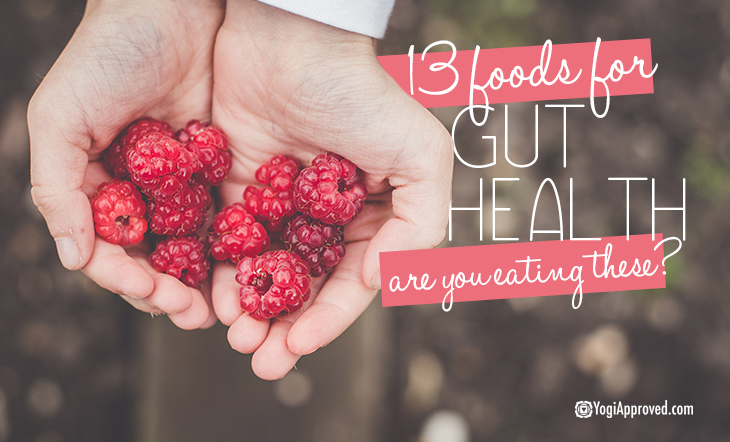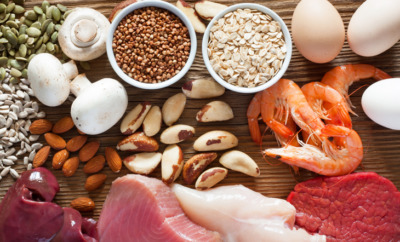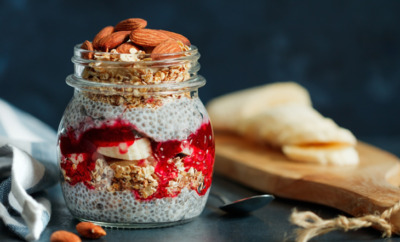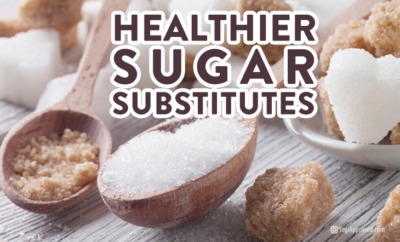Want to Improve Your Gut Health? Eat These 13 Foods

Our bodies are made to move. In yoga we move our skeletal muscles, but did you know that when we eat we work another type of muscle? Oh yes! The “smooth muscle” that lines our digestive tract gets a workout each time you eat. Read on to find out what foods this nutritionist recommends for gut health.
You need to care about your gastrointestinal (GI tract) . . . think of it as healing from the inside out.
You need to care about your gastrointestinal (GI) tract . . . aka your gut. Think of it as healing from the inside out. While some symptoms that are completely normal for humans to experience – such as gas, bloating, and residual noises – too much of any of these symptoms can indicate something else is going on.
Here Are 13 Nutritionist Recommended Foods for Gut Health
In general, there are a few nutrition tips that you can follow to maintain gut health. Though this list provides a great variety of foods, it is not meant to treat or cure and GI issues you may be experiencing.
1. High Fiber Foods
Evidence supports that a high-fiber diet is great for your gut health. Fiber protects against many chronic diseases, and almost promotes satiety.
Fiber actually gives your gut a workout.
Smooth muscle in your gut contracts to move along the contents inside. Without fiber, there isn’t much to move, and that can lead to constipation. In general women should aim for 25 grams of fiber and men should aim for 38 grams daily.
When adding fiber into your diet, start low and go slow to make it as pleasant of an experience as possible. Make sure to also include more fluids in your diet.
Here are 5 high-fiber foods:
- Old-fashioned Rolled Oats: 5g fiber per ½ cup dry
- Fresh Pears: 4g fiber per 1 pear
- Navy Beans: 9.5g fiber per ½ cup
- Sweet Potatoes: 5g fiber per 1 medium
- Raspberries: 6g fiber per ½ cup
2. Prebiotics
All prebiotics are fiber, but not all fiber is prebiotic. Oligosaccharides are the most common prebiotic in food. Prebiotics resist digestion in the human small intestine and reach the colon where they are fermented by the gut bacteria
Both the types of bacteria and their activity may change depending on our intake of oligosaccharides.
Here are 4 foods that provide prebiotics:
- Garlic
- Asparagus
- Artichokes
- Leeks
3. Probiotics
The International Scientific Association for Probiotics and Prebiotics states that the definition of probiotic is “live microorganisms that, when administered in adequate amounts, confer a health benefit on the host.”
So unlike prebiotics, which feed the current bacteria living in your gut, probiotics are living bacteria you eat when eating these foods. That sounds weird but don’t worry! Probiotics are good for you!
Here are 4 foods that provide probiotics:
- Kefir
- Yogurt (homemade is best for live and active cultures)
- Kombucha
- Tempeh
The Nutritionist Takeaway on Maintaining Optimal Gut Health
The majority of this list is made up of plant foods, so a key takeaway is that a plant based diet is very beneficial for gut health. Carbohydrates should make up 45-65% of our diets. Fiber is a carbohydrate, and a key nutrient needed for our bodies to function and move properly.
Fermented foods like fermented soy and milk products also show promise in optimizing gut health. While individual nutrient needs may vary, following a mostly plant based diet is great for our health and (the gut buddies) inside of us.
Happy gut health!




























Comments